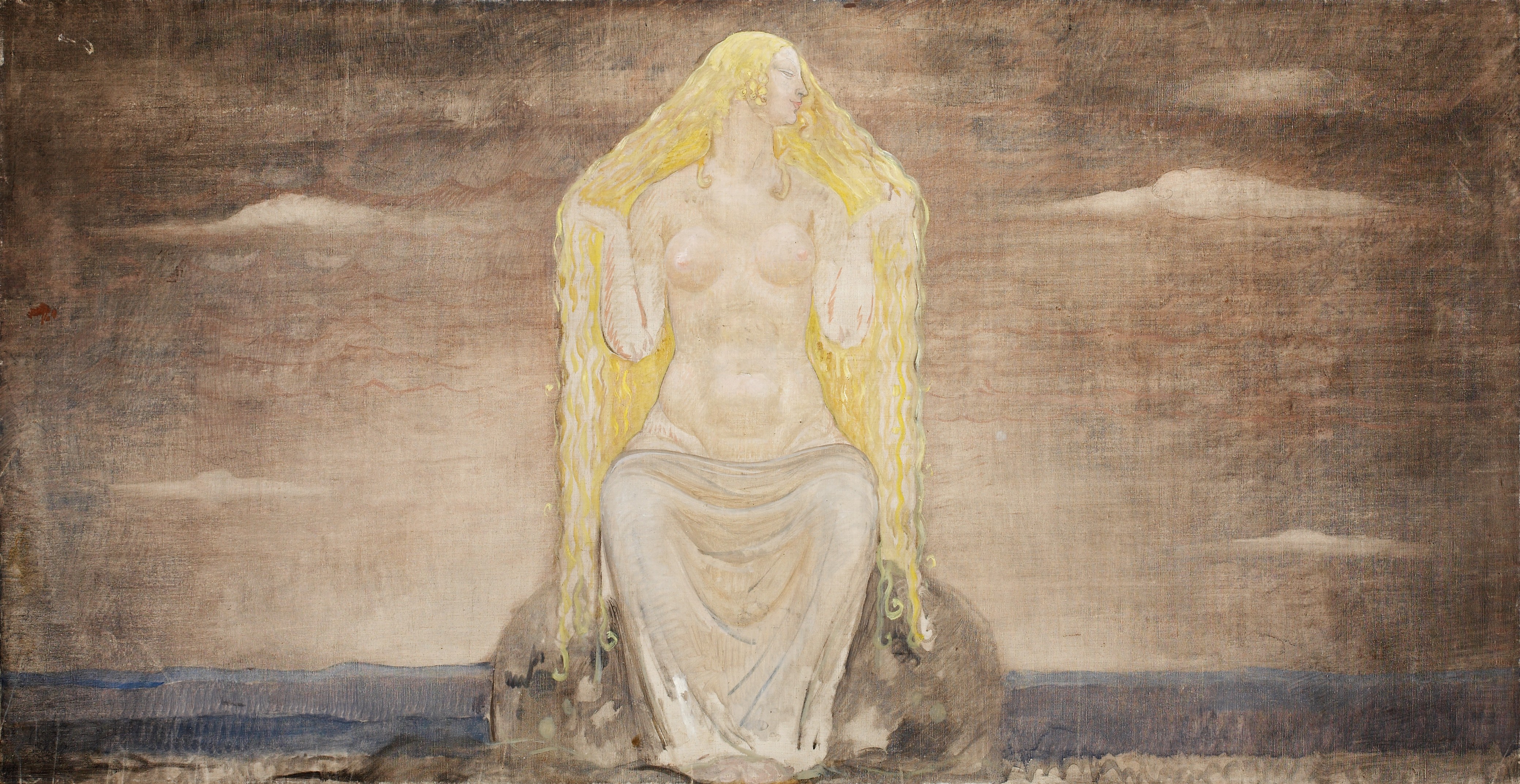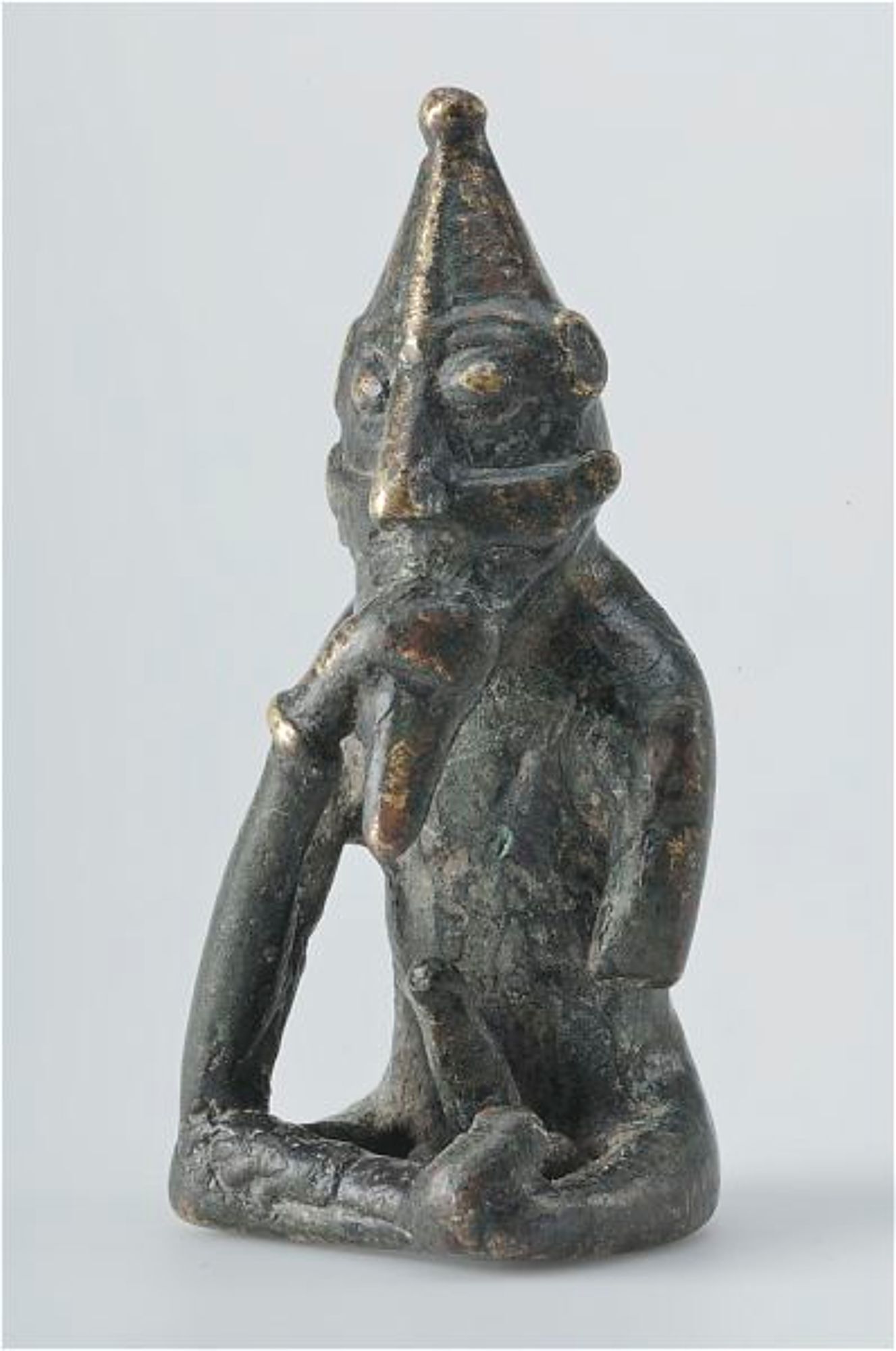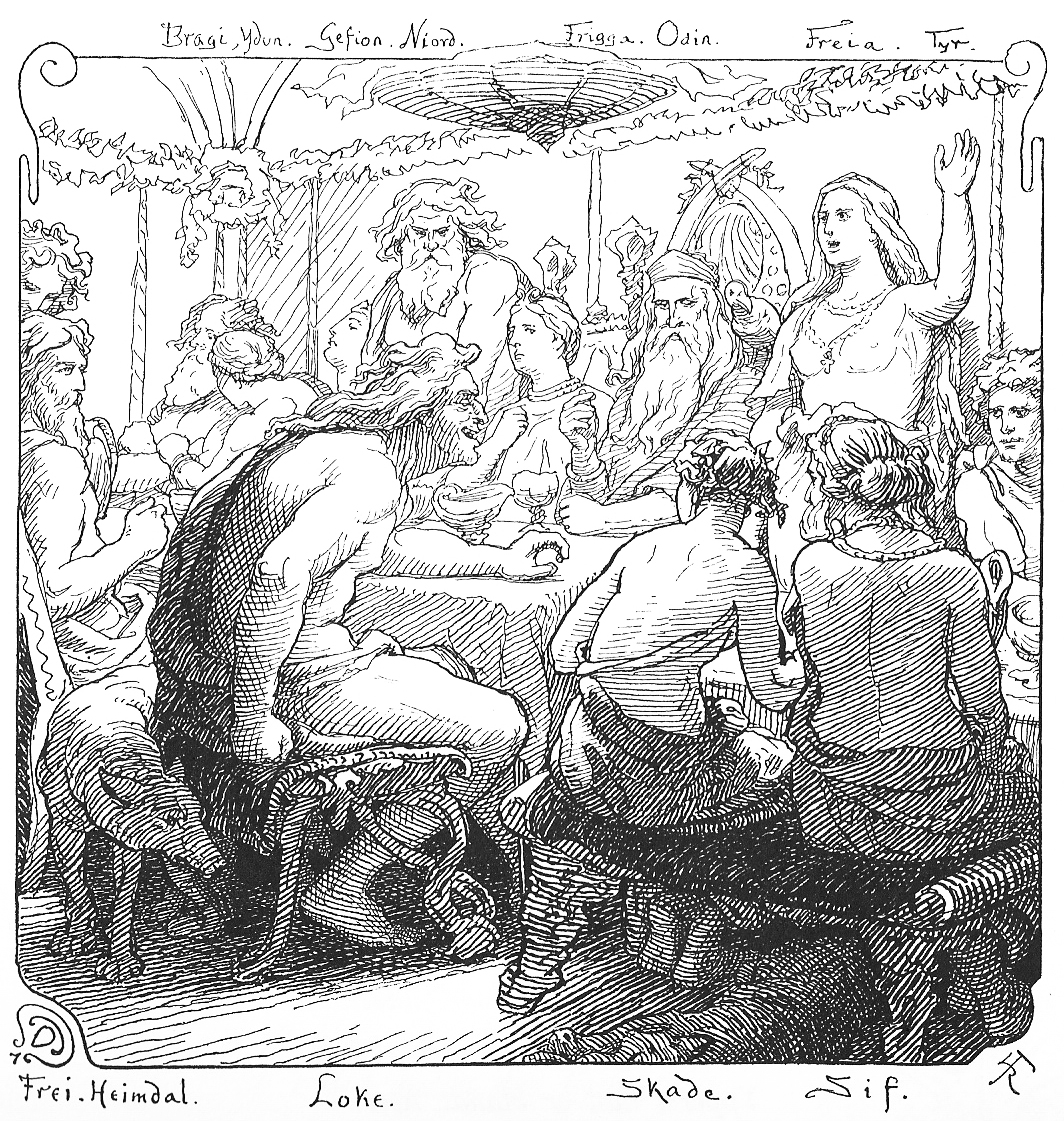|
Wealhtheow
Wealhtheow (also rendered Wealhþēow or Wealthow; ang, Ƿealhþēoƿ ) is a queen of the Danes in the Old English poem, '' Beowulf'', first introduced in line 612. Character overview Wealhtheow is of the Wulfing clan, Queen of the Danes. She is married to Hrothgar (Hrōðgār), the Danish king and is the mother of sons, Hreðric and Hroðmund, and a daughter Freawaru. The meaning of her name is disputed. One possible translation is "foreign slave" (Hill, 1990). In her marriage to Hrothgar she is described as ''friðusibb folca'' (l. 2017), 'the kindred pledge of peace between peoples', signifying interdynastic allegiance between Wulfing and Scylding achieved with her marriage to Hrothgar. She is both 'Lady of the Helmings' (l. 620) (by descent, of the Wulfing clan of Helm) and 'Lady of the Scyldings' (l. 1168), by marriage and maternity. Two northern sources associate the wife of Hrothgar with England. The ''Skjöldunga saga'', in Arngrímur Jónsson's abstract, chapter 3, te ... [...More Info...] [...Related Items...] OR: [Wikipedia] [Google] [Baidu] |
Wealhtheow
Wealhtheow (also rendered Wealhþēow or Wealthow; ang, Ƿealhþēoƿ ) is a queen of the Danes in the Old English poem, '' Beowulf'', first introduced in line 612. Character overview Wealhtheow is of the Wulfing clan, Queen of the Danes. She is married to Hrothgar (Hrōðgār), the Danish king and is the mother of sons, Hreðric and Hroðmund, and a daughter Freawaru. The meaning of her name is disputed. One possible translation is "foreign slave" (Hill, 1990). In her marriage to Hrothgar she is described as ''friðusibb folca'' (l. 2017), 'the kindred pledge of peace between peoples', signifying interdynastic allegiance between Wulfing and Scylding achieved with her marriage to Hrothgar. She is both 'Lady of the Helmings' (l. 620) (by descent, of the Wulfing clan of Helm) and 'Lady of the Scyldings' (l. 1168), by marriage and maternity. Two northern sources associate the wife of Hrothgar with England. The ''Skjöldunga saga'', in Arngrímur Jónsson's abstract, chapter 3, te ... [...More Info...] [...Related Items...] OR: [Wikipedia] [Google] [Baidu] |
Beowulf
''Beowulf'' (; ang, Bēowulf ) is an Old English epic poem in the tradition of Germanic heroic legend consisting of 3,182 alliterative lines. It is one of the most important and most often translated works of Old English literature. The date of composition is a matter of contention among scholars; the only certain dating is for the manuscript, which was produced between 975 and 1025. Scholars call the anonymous author the "''Beowulf'' poet". The story is set in pagan Scandinavia in the 6th century. Beowulf, a hero of the Geats, comes to the aid of Hrothgar, the king of the Danes, whose mead hall in Heorot has been under attack by the monster Grendel. After Beowulf slays him, Grendel's mother attacks the hall and is then defeated. Victorious, Beowulf goes home to Geatland and becomes king of the Geats. Fifty years later, Beowulf defeats a dragon, but is mortally wounded in the battle. After his death, his attendants cremate his body and erect a tower on a headland in ... [...More Info...] [...Related Items...] OR: [Wikipedia] [Google] [Baidu] |
Beowulf - Wealh Theo
''Beowulf'' (; ang, Bēowulf ) is an Old English epic poem in the tradition of Germanic heroic legend consisting of 3,182 alliterative lines. It is one of the most important and most often translated works of Old English literature. The date of composition is a matter of contention among scholars; the only certain dating is for the manuscript, which was produced between 975 and 1025. Scholars call the anonymous author the "''Beowulf'' poet". The story is set in pagan Scandinavia in the 6th century. Beowulf, a hero of the Geats, comes to the aid of Hrothgar, the king of the Danes, whose mead hall in Heorot has been under attack by the monster Grendel. After Beowulf slays him, Grendel's mother attacks the hall and is then defeated. Victorious, Beowulf goes home to Geatland and becomes king of the Geats. Fifty years later, Beowulf defeats a dragon, but is mortally wounded in the battle. After his death, his attendants cremate his body and erect a tower on a headland in his ... [...More Info...] [...Related Items...] OR: [Wikipedia] [Google] [Baidu] |
Hrothgar
Hrothgar ( ang, Hrōðgār ; on, Hróarr) was a semi-legendary Danish king living around the early sixth century AD. Hrothgar appears in the Anglo-Saxon epics ''Beowulf'' and ''Widsith'', in Norse sagas and poems, and in medieval Danish chronicles. In both Anglo-Saxon and Scandinavian tradition, Hrothgar is a Scylding, the son of Halfdan, the brother of Halga, and the uncle of Hrólfr Kraki. Moreover, in both traditions, the mentioned characters were the contemporaries of the Swedish king Eadgils; and both traditions also mention a feud with men named Fróði and Ingeld. The consensus view is that Anglo-Saxon and Scandinavian traditions describe the same person. Names Hrothgar, also rendered ''Hrōðgār'', is an Old English form attested in ''Beowulf'' and ''Widsith'', the earliest sources to mention the character. In non-English sources, the name appears in more or less corresponding Old Icelandic, Old Danish, and Latinized versions. He appears as ''Hróarr'', ''Hroar'', ... [...More Info...] [...Related Items...] OR: [Wikipedia] [Google] [Baidu] |
Völva
In Germanic paganism, a seeress is a woman said to have the ability to foretell future events and perform sorcery. They are also referred to with many other names meaning "prophetess", "staff bearer", "wise woman" and "sorceress", and they are frequently called ''witches'' or ''priestesses'' both in early sources and in modern scholarship. They were an expression of the pre-Christian shamanic traditions of Europe, and they held an authoritative position in Germanic society. Mentions of Germanic seeresses occur as early as the Roman era, when, for example, they at times led armed resistance against Roman rule and acted as envoys to Rome. After the Roman Era, seeresses occur in records among the North Germanic people, where they form a reoccurring motif in Norse mythology. Both the classical and the Norse accounts imply that they used wands, and describe them as sitting on raised platforms during séances. Ancient Roman and Greek literature records the name of several Germanic s ... [...More Info...] [...Related Items...] OR: [Wikipedia] [Google] [Baidu] |
Widsith
"Widsith" ( ang, Wīdsīþ, "far-traveller", lit. "wide-journey"), also known as "The Traveller's Song", is an Old English poem of 143 lines. It survives only in the ''Exeter Book'', a manuscript of Old English poetry compiled in the late-10th century, which contains approximately one-sixth of all surviving Old English poetry. "Widsith" is located between the poems " Vainglory" and " The Fortunes of Men". Since the donation of the ''Exeter Book'' in 1076, it has been housed in Exeter Cathedral in southwestern England. The poem is for the most part a survey of the people, kings, and heroes of Europe in the Heroic Age of Northern Europe. Date of original composition There is some controversy as to when "Widsith" was first composed. Some historians, such as John Niles, argue that the work was invented after King Alfred's rule to present "a common glorious past", while others, such as Kemp Malone, have argued that the piece is an authentic transcription of old heroic songs. Among ... [...More Info...] [...Related Items...] OR: [Wikipedia] [Google] [Baidu] |
Suffolk
Suffolk () is a ceremonial county of England in East Anglia. It borders Norfolk to the north, Cambridgeshire to the west and Essex to the south; the North Sea lies to the east. The county town is Ipswich; other important towns include Lowestoft, Bury St Edmunds, Newmarket, and Felixstowe which has one of the largest container ports in Europe. The county is low-lying but can be quite hilly, especially towards the west. It is also known for its extensive farming and has largely arable land with the wetlands of the Broads in the north. The Suffolk Coast & Heaths and Dedham Vale are both nationally designated Areas of Outstanding Natural Beauty. History Administration The Anglo-Saxon settlement of Suffolk, and East Anglia generally, occurred on a large scale, possibly following a period of depopulation by the previous inhabitants, the Romanised descendants of the Iceni. By the fifth century, they had established control of the region. The Anglo-Saxon inhabitants later b ... [...More Info...] [...Related Items...] OR: [Wikipedia] [Google] [Baidu] |
Vanir
In Norse mythology, the Vanir (; Old Norse: , singular Vanr ) are a group of gods associated with fertility, wisdom, and the ability to see the future. The Vanir are one of two groups of gods (the other being the Æsir) and are the namesake of the location Vanaheimr (Old Norse "Home of the Vanir"). After the Æsir–Vanir War, the Vanir became a subgroup of the Æsir. Subsequently, members of the Vanir are sometimes also referred to as members of the Æsir. The Vanir are attested in the ''Poetic Edda'', compiled in the 13th century from earlier traditional sources; the ''Prose Edda'' and ''Heimskringla'', both written in the 13th century by Snorri Sturluson; and in the poetry of skalds. The Vanir are only attested in these Old Norse sources. All sources describe the god Njörðr, and his children Freyr and Freyja as members of the Vanir. A euhemerism, euhemerized prose account in ''Heimskringla'' adds that Sister-wife of Njörðr, Njörðr's sister—whose name is not provided—a ... [...More Info...] [...Related Items...] OR: [Wikipedia] [Google] [Baidu] |
List Of Names Of Freyr
The Germanic god Freyr is referred to by many names in Old Norse poetry and literature. Multiple of these are attested only once in the extant record and are found principally in Skáldskaparmál. Some names have been further proposed by scholars to have referred to the god in the Medieval period, including one from Old English literature. Names Proposed names Scholars have proposed names that may have been used historically to refer to Freyr. In contrast to the first table, these names rely to varying extents on speculation and are not unequivocal. } (the wise one). , - , Þrór , Thror , Related to non, Þróaz ("to grow, to increase"). Has been proposed to mean "The sexually prolific" and "The thriving". , ''Grímnismál'' (49), Ynglingatal (51) , A name for Óðinn, proposed by John McKinnell to have been a name for Freyr due to the description of the Norwegian branch of the Ynglings as 'Þrór's descent' ( non, niðkvísl Þrós) and its use as a heiti for boar in ... [...More Info...] [...Related Items...] OR: [Wikipedia] [Google] [Baidu] |
Iceland
Iceland ( is, Ísland; ) is a Nordic island country in the North Atlantic Ocean and in the Arctic Ocean. Iceland is the most sparsely populated country in Europe. Iceland's capital and largest city is Reykjavík, which (along with its surrounding areas) is home to over 65% of the population. Iceland is the biggest part of the Mid-Atlantic Ridge that rises above sea level, and its central volcanic plateau is erupting almost constantly. The interior consists of a plateau characterised by sand and lava fields, mountains, and glaciers, and many glacial rivers flow to the sea through the lowlands. Iceland is warmed by the Gulf Stream and has a temperate climate, despite a high latitude just outside the Arctic Circle. Its high latitude and marine influence keep summers chilly, and most of its islands have a polar climate. According to the ancient manuscript , the settlement of Iceland began in 874 AD when the Norwegian chieftain Ingólfr Arnarson became the first p ... [...More Info...] [...Related Items...] OR: [Wikipedia] [Google] [Baidu] |
Freyja
In Norse paganism, Freyja (Old Norse "(the) Lady") is a goddess associated with love, beauty, fertility, sex, war, gold, and seiðr (magic for seeing and influencing the future). Freyja is the owner of the necklace Brísingamen, rides a chariot pulled by two cats, is accompanied by the boar Hildisvíni, and possesses a cloak of falcon feathers. By her husband Óðr, she is the mother of two daughters, Hnoss and Gersemi. Along with her twin brother Freyr, her father Njörðr, and her mother ( Njörðr's sister, unnamed in sources), she is a member of the Vanir. Stemming from Old Norse ''Freyja'', modern forms of the name include Freya, Freyia, and Freja. Freyja rules over her heavenly field, Fólkvangr, where she receives half of those who die in battle. The other half go to the god Odin's hall, Valhalla. Within Fólkvangr lies her hall, Sessrúmnir. Freyja assists other deities by allowing them to use her feathered cloak, is invoked in matters of fertility and love, and is fre ... [...More Info...] [...Related Items...] OR: [Wikipedia] [Google] [Baidu] |




